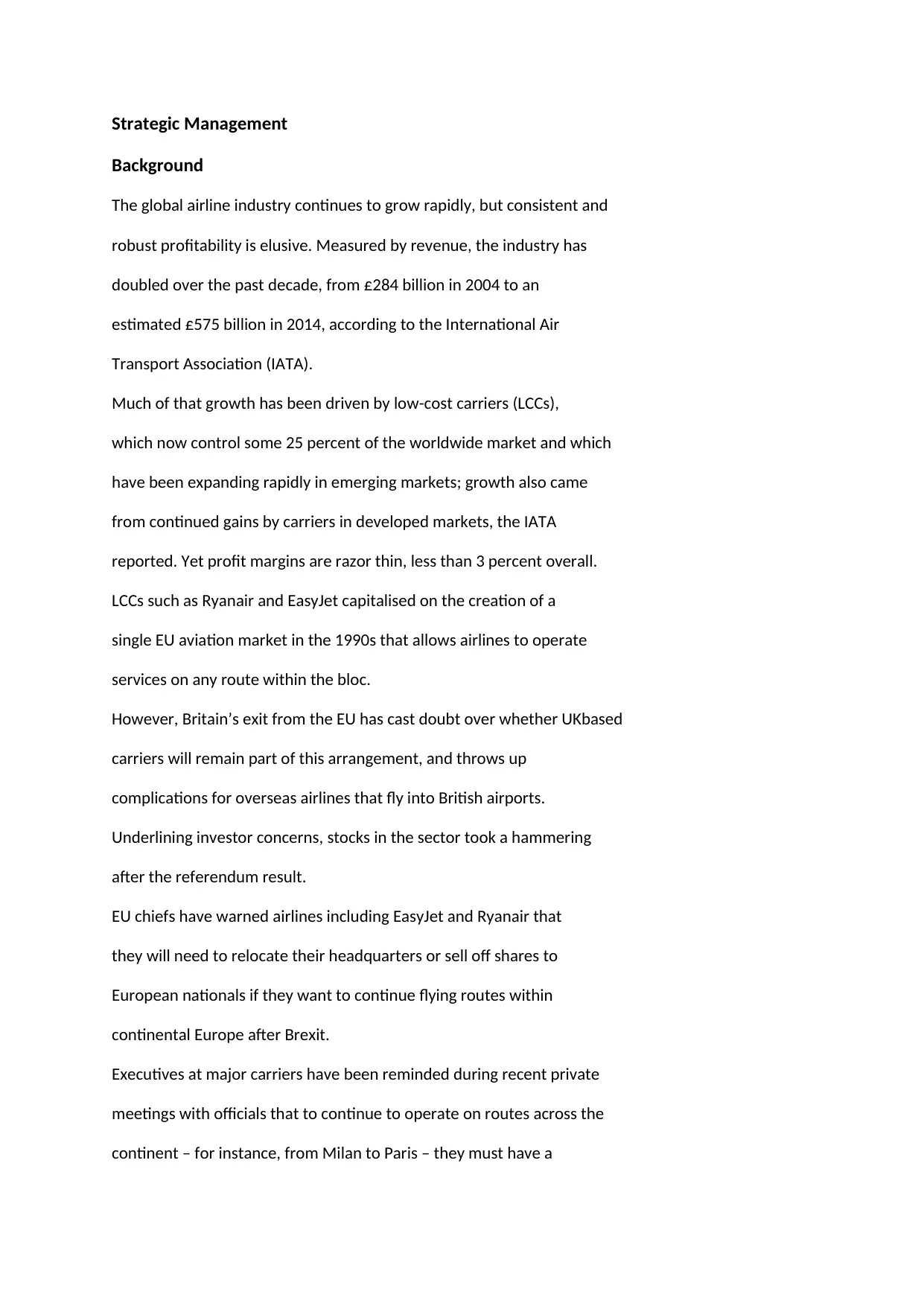Strategic Management Report: EasyJet HQ Relocation in EU Post-Brexit
VerifiedAdded on 2019/09/19
|3
|761
|419
Report
AI Summary
This report addresses the strategic challenges faced by EasyJet following the Brexit vote, specifically focusing on the relocation of its headquarters to an EU member state. The analysis begins with a critical examination of the external environment and industry competition in the chosen EU country, considering both the existing competitive landscape and the implications of EasyJet's relocation. The report then utilizes relevant frameworks to evaluate EasyJet's resources and competencies, emphasizing how these can be leveraged to gain a competitive advantage in the new location. Furthermore, the report assesses the suitability of EasyJet's current vision and mission statements in the context of the strategic change, proposing refinements if necessary. Finally, a comprehensive SWOT analysis is constructed based on the preceding analyses, leading to recommendations for adjustments to EasyJet's business-level strategy, with justifications provided for any proposed changes or for maintaining the current strategy. The report also includes an Employability Skills Self-Assessment Survey and adheres to Harvard referencing guidelines.
1 out of 3










![[object Object]](/_next/static/media/star-bottom.7253800d.svg)